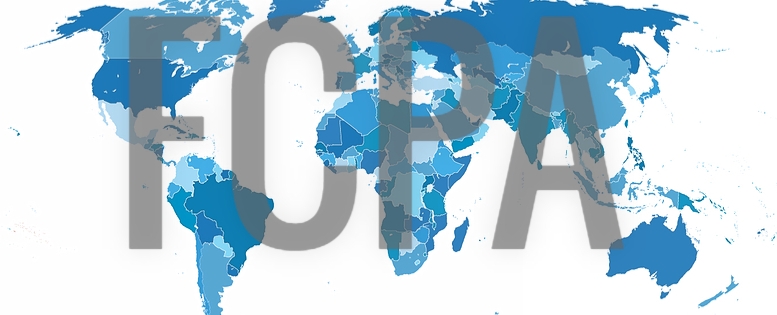

Government Contests Assertion of Attorney-Client Privilege in Assessing Cooperation

However else one characterizes 2016, it was a very good year for the government’s Foreign Corrupt Practices Act (FCPA) profit center. Twenty-seven companies paid about $2.48 billion to resolve FCPA cases, a record. Although the incoming Administration may shift priorities, there exists considerable institutional momentum behind continued FCPA enforcement. In that light, it’s worth taking a look back at one of the last FCPA cases of 2016.
On December 22, 2016, pharmaceutical manufacturer Teva agreed to pay a total of $519 million for FCPA offenses in Ukraine, Mexico, and Russia. Under a three-year deferred prosecution agreement (DPA) with DOJ, Teva will pay a criminal fine of $283 million; a Russian subsidiary pleaded guilty to conspiracy to violate the FCPA’s anti-bribery provisions; and in the parallel SEC civil action, the company will disgorge $236 million.
We’ve written about DOJ’s 2016 FCPA Enforcement Plan and its pilot self-disclosure program here and here. Under that pilot program, companies may receive cooperation credit in FCPA cases if they: (1) voluntarily self-disclose FCPA violations; (2) cooperate fully with the DOJ’s investigation; and (3) remediate the compliance issues that led to the FCPA violation. If a company does not voluntarily self-disclose its misconduct, but later fully cooperates and remediates, the DOJ will accord, at most, a 25% reduction off the bottom end of the Sentencing Guidelines fine range. Teva did not self-disclose but presumably sought to achieve the 25% “full cooperation” discount.
Teva’s cooperative efforts were noteworthy. In the Teva DPA, the government acknowledges that Teva: (1) voluntarily made U.S. and foreign employees available for interviews; (2) deferred personnel actions in order to allow U.S. and foreign employees to be available for interviews; (3) deferred its own witness interviews to avoid conflicts with the Fraud Section's investigation (DOJ calls this “de-conflicting”); (4) collected, analyzed, translated and organized voluminous evidence from multiple jurisdictions; (5) updated the Fraud Section regarding the results of the Company's internal investigation; (6) per the “Yates” memo, provided all non-privileged facts relating to individual involvement in the conduct described in the Statement of Facts; and (7) disclosed to the Fraud Section conduct in Russia and Ukraine of which the Fraud Section was unaware.
Yet, notwithstanding Teva’s seemingly excellent and varied efforts at cooperation, the government docked Teva 5% from the potential 25% discount off of the bottom of the Sentencing Guidelines fine range with the following explanation:
[Teva] did not receive full credit because of issues that resulted in delays to the early stages of the investigation, including vastly overbroad assertions of attorney-client privilege and not producing documents on a timely basis in response to certain Fraud Section document requests….
DPA at ¶ 4(b) (emphasis added).
Of course, we don’t know the facts concerning Teva’s privilege assertions or its communications with the government on that topic. But this 5% penalty is noteworthy when one considers corporate document production in the usual federal investigation. These days, the government usually issues a kitchen sink subpoena or CID embracing hard copy files and all electronic devices. With the help of forensic experts employing word searches and algorithms, terabytes of seemingly responsive documents are located. Corporations then usually cut into these terabytes by sequestering for later privilege review, documents that contain the names of a corporation’s in-house or outside counsel.
This precaution is taken to balance conflicting objectives. On the one hand, the privilege is important and “cooperation” does not require a privilege waiver. U.S. Attorneys’ Manual at § 9-28.720 (Nov. 2015) (“Eligibility for cooperation credit is not predicated upon the waiver of attorney-client privilege or work product protection.”). It follows that privilege reviews are necessary; moreover, the applicability of the privilege cannot be quickly and finally determined either by algorithm, word search or, usually, even temp attorneys. On the other hand, the corporation wants to be cooperative and promptly get the government otherwise responsive documents on a rolling basis. As a result, a privilege review of these sequestered documents, and the compilation of a privilege log, almost always lags behind the first rounds of responsive document production. Documents subsequently “de-privileged” upon review necessarily are produced later in time.
While the government’s assessment of Teva’s cooperation came in the context of the FCPA pilot program, there is little reason to think that prosecutors won’t seek to pressure companies in other kinds of cases by employing a similar analysis to document production and cooperation. And if the government is going to penalize companies based on the government’s assessment of the propriety and timing of assertions of attorney-client privilege, then corporate counsel should seriously consider whether, when, and what to communicate to the government about the company’s privilege review process.
Disclaimer: This post does not offer specific legal advice, nor does it create an attorney-client relationship. You should not reach any legal conclusions based on the information contained in this post without first seeking the advice of counsel.


